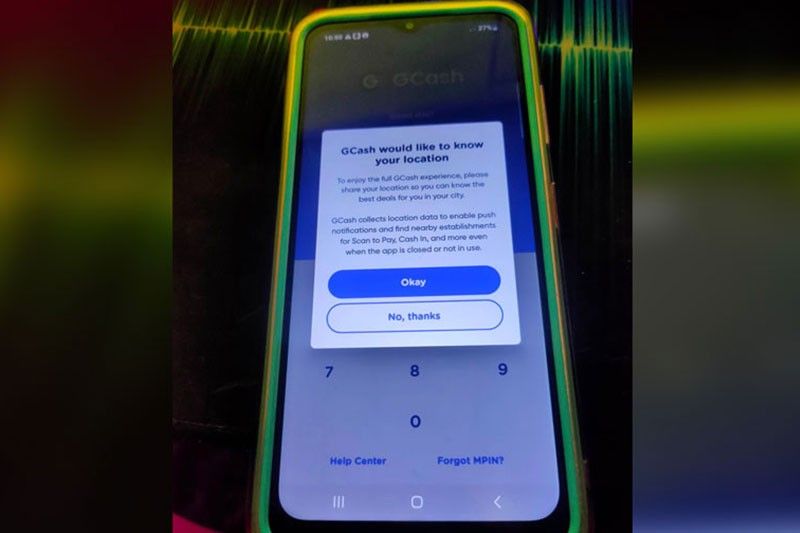Senators push jail for e-wallet hackers

MANILA, Philippines — Sen. Jinggoy Estrada is seeking the imposition of a jail term and fine of up to P5 million on cyber criminals in his Senate Bill 2171, the proposed Bank Accounts, Electronic Wallets and Other Financial Accounts Regulation Act.
“If the authorities have the capability to trace those behind hacking or unauthorized transactions, scamming and other modus using the internet or through mobile banking, there should also be punishment of imprisonment or stiff fines,” Estrada said in Filipino.
“If we don’t want the public to lose confidence in digital transactions, there should be assurance that their hard-earned money that was lost would be returned immediately,” he added.
The proposed measure seeks to fully equip and empower government agencies and financial regulators to address cybercrime schemes and provide financial consumers with efficient means to resolve their complaints.
Due to their damaging effect on the economy, the senator is seeking to declare the commission of large-scale offenses or the use of a mass mailer as a form of economic sabotage and a heinous crime, punishable with life imprisonment and a fine ranging from P1 million to P5 million.
An act shall be deemed committed by a syndicate if it was carried out by a group of three or more persons conspiring with one another, while those considered as large scale are acts against three or more persons individually or as a group, according to the bill.
It also seeks to prohibit money mules, social engineering schemes and acts abetting in the commission of the covered offenses.
Under the money mule scheme, illegally acquired money is transferred on behalf of someone else through an e-wallet or other financial account, while social engineering schemes include phishing, tricking users into making security mistakes or giving away sensitive information.
Those found guilty of money mule transactions face imprisonment of between six months and a day to six years or a fine of P100,000 to P200,000, while those guilty of social engineering schemes may be sentenced to imprisonment of between six years and 12 years and a fine of between P200,000 and P500,000.
Meanwhile, Sen. Mark Villar, who chairs the Senate committee on banks, financial institutions and currencies, sought an inquiry into incidents of bank-related scams and fraud.
“Whether as mere passive entities for the safekeeping and saving of money or as active instruments of business and commerce, banks have become an ubiquitous presence among the people, who have come to regard them with respect and even gratitude and, most of all, confidence,” Villar said in his Senate Resolution 589, which called for the probe.
“There is a need to evaluate the effectiveness of the mechanisms resorted to by the banks to prevent bank frauds and scams and to ensure that the banks, with highest degree of diligence, shall prioritize and protect the interests of the bankers and of the public,” he said.
Citing reports from the Bangko Sentral ng Pilipinas (BSP) covering 2019 to 2021, Villar said complaints lodged by consumers involved a total of P2 billion worth of financial transactions, mostly due to scams as well as hacking and phishing incidents.
BSP received 42,456 complaints from consumers who became victims of financial fraud, of which internet banking and mobile banking accounted for 45.2 percent, said the senator.
GCashIn another development, the Department of Information and Communications Technology (DICT) has launched its own investigation into e-wallet giant GCash to determine what caused the recent unauthorized transfer of funds from the app.
The DICT appears to doubt the explanation issued by GCash claiming individuals who lost their funds in the e-wallet fell victim to phishing.
Information Secretary Ivan John Uy said the Cybercrime Investigation and Coordinating Center (CICC) and the National Privacy Commission are joining the DICT in looking into the matter and verifying GCash’s claim that no hacking occurred.
“That is their statement. It has to be investigated by proper authorities to ascertain whether that is true or not,” Uy said in a TV interview. “Their company is affected. It is self-serving if ever they are the ones who do the explanation. I think an independent group has to look into it and see what really happened.”
Last Tuesday, multiple GCash users complained that their accounts made unauthorized transfers worth tens of thousands of pesos to two unidentified depositors of local banks Asia United Bank and EastWest Bank. — Elijah Felice Rosales
- Latest
- Trending


























